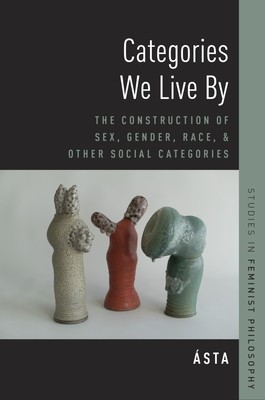
- We will send in 10–14 business days.
- Author: Asta
- Publisher: Oxford University Press, USA
- ISBN-10: 019025680X
- ISBN-13: 9780190256807
- Format: 15.5 x 23.1 x 1.3 cm, softcover
- Language: English
- SAVE -10% with code: EXTRA
Reviews
Description
We are women, we are men. We are refugees, single mothers, people with disabilities, and queers. We belong to social categories and they frame our actions, self-understanding, and opportunities. But what are social categories? How are they created and sustained? How does one come to belong to them?
Ãsta approaches these questions through analytic feminist metaphysics. Her theory of social categories centers on an answer to the question: what is it for a feature of an individual to be socially meaningful? In a careful, probing investigation, she reveals how social categories are created and sustained and demonstrates their tendency to oppress through examples from current events. To this end, she offers an account of just what social construction is and how it works in a range of examples that problematize the categories of sex, gender, and race in particular. The main idea is that social categories are conferred upon people. Ãsta introduces a 'conferralist' framework in order to articulate a theory of social meaning, social construction, and most importantly, of the construction of sex, gender, race, disability, and other social categories.EXTRA 10 % discount with code: EXTRA
The promotion ends in 17d.15:23:25
The discount code is valid when purchasing from 10 €. Discounts do not stack.
- Author: Asta
- Publisher: Oxford University Press, USA
- ISBN-10: 019025680X
- ISBN-13: 9780190256807
- Format: 15.5 x 23.1 x 1.3 cm, softcover
- Language: English English
We are women, we are men. We are refugees, single mothers, people with disabilities, and queers. We belong to social categories and they frame our actions, self-understanding, and opportunities. But what are social categories? How are they created and sustained? How does one come to belong to them?
Ãsta approaches these questions through analytic feminist metaphysics. Her theory of social categories centers on an answer to the question: what is it for a feature of an individual to be socially meaningful? In a careful, probing investigation, she reveals how social categories are created and sustained and demonstrates their tendency to oppress through examples from current events. To this end, she offers an account of just what social construction is and how it works in a range of examples that problematize the categories of sex, gender, and race in particular. The main idea is that social categories are conferred upon people. Ãsta introduces a 'conferralist' framework in order to articulate a theory of social meaning, social construction, and most importantly, of the construction of sex, gender, race, disability, and other social categories.

Reviews